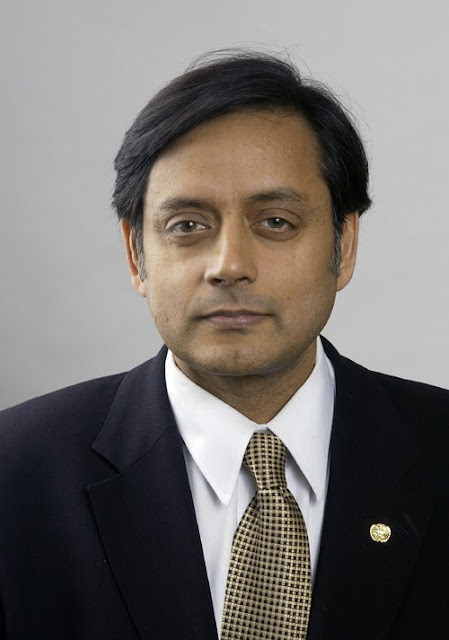காரண காரியத்தில் நிறைந்திருக்கும் பூரணத்தைத் தெரிந்து கொள்வது எப்போதாம்?
Our mind is a house haunted by the slain past,
Ideas soon mummified, ghosts of old truths,
God's spontaneties tied with formal strings
And packed into drawers of reason's trim bureau,
Sri Aurobindo,
Savitri Bk. II, Canto. XIII, P. 285
மனம் என்பது இரு விதமான முரண்பாடுகளுக்கிடையில் எப்போதும் சலித்துக் கொண்டே இருக்கிற கருவி, ஏன், எப்படி, எதனால் என்று தர்க்கித்துக் கொண்டே போகும். இப்படிப் பட்ட கருவி ஒரு போதும் உண்மையை உள்ளது உள்ளபடி அறிந்து கொள்ள முடியாது. இந்தத் தருணத்தில்மிகவும் புரட்சிகரமாகத் தோன்றுகிற ஒரு கருத்து அல்லது வடிவம், சீக்கிரமாகவே நீர்த்துப் போவதை நம் அன்றாட வாழ்வில் பார்த்துக் கொண்டு தானே இருக்கிறோம்!
மத நம்பிக்கைகள் மனிதன் தன் அன்றாட வாழ்வில் சந்தித்துக் கொண்டிருக்கிற முரண்பாடுகளுக்கு தீர்வு காண்பவையாக இருந்ததுண்டு. தீர்வு காண்கிறேன் பேர்வழி என்று நிறைய இடைச் செருகல்களாகப் புகுந்து கொள்ள, காலப் போக்கில் இந்த தீர்வுகளே புதிய பிரச்சினைகளாகமாறிப் போனதையும் வரலாற்றில் நாம் பார்த்திருக்கிறோம்.
உடனேயே "மதம் என்பது மக்களுக்கு வழங்கப்படும் அபின்" அல்லது "கடவுளைக் கற்பித்தவன் முட்டாள்" என்று ஆரம்பித்து, எல்லாப் பிரச்சினைக்கும் இவர் அல்லது அவர் தான் காரணம் என்று பழியை ஏதோ ஒன்றின் மேல் சுமத்தி விட்டால் பிரச்சினை தீர்ந்தது!
உண்மையான பிரச்சினை என்ன என்பதையே மறந்து விட்டு ஏதோ ஒரு ஈயம் பூசிவிட்டால் அது தான் தீர்வு என்று மயங்கிக் கிடக்கிறோம். மார்க்சீயம், பார்ப்பனீயம் இன்னும் வகை வகையான ஈயங்கள்! ஈயங்களுக்கா இங்கே பஞ்சம்!
ஒரு மதம் என்பது, ஒரு குறிப்பிட்ட தனிநபர் தான் கண்டடைந்த அனுபவத்தின் மீது சொல்லப் படுவதில் எழுப்பப் படுவது. அதைப் பின் பற்றுகிறவர்களுக்கு வழிகாட்டியாக இருப்பது. திக்கு திசை தெரியாமல் தேங்கி இருப்பதை விட, ஏதோ ஒன்றைப் பிடித்துக் கொண்டு முன்னேற ஒரு வழி அவ்வளவு தான்! இப்படி தனிநபர்களால், அவர்களுக்குக் கிடைத்த அனுபவங்களைப் பகிர்ந்து கொள்ளும், குழு, அல்லது கூட்டம் ஒரு நம்பிக்கையாக, ஒரு மதமாக உருவாகிறது. ஆக ஆரம்பித்து வைத்தவரின் அனுபவத்தின் அளவுக்கு மட்டுமே அந்த மதத்தின் எல்லை என்பதாகி விடுகிறது.
ஸ்ரீ அரவிந்த அன்னை மதங்களின் தேவை முடிந்து விட்டதாக அறிவிக்கிறார்! மதங்களின் தேவை முடிவது எப்போது?
குறுகிய வட்டத்தில் இருந்து ஆன்மீகச் சிந்தனைக்கு உயருகிற போது, மதம் என்பது அவசியம் இல்லாது போகும்.
ஆன்மீகச் சிந்தனை என்பது ஒரு பரந்த பார்வை, தனக்கும் இந்தப் பிரபஞ்சத்திற்கும் உள்ள தொடர்பை உணர்ந்த நிலை! எல்லாவற்றையும் நேசிக்கக் கற்றுக் கொண்ட நிலை. ஆன்மீகம் என்கிற போதே, எல்லாவற்றையும் துறந்த நிலை என்பதாக தப்பான ஒரு கருத்தை ஏற்படுத்திக் கொண்டு, அடிப்படை உண்மைகளையே நிராகரிக்கிற தப்பான அணுகுமுறைக்குப் போய் விடுகிறோம்.
உண்மையில், ஆன்மீகம் என்பது எல்லாவற்றையும் ஏற்றுக் கொள்கிற ஒரு பக்குவமான நிலை. ஸ்ரீ அரவிந்த அன்னை இதை எளிதாகப் புரிகிற மாதிரி விளக்குவதைக் கொஞ்சம் யோசித்துப் பாருங்கள்!
Why does man have faith in reason?
Because reason has a legitimate function to fulfill, for which it is perfectly adapted; and this is to justify and illumine for man his various experiences and to give him faith and conviction in holding on to the enlarging of his consciousness.
This truth is hidden from the rationalist because he is supported by two constant articles of faith, first that his own reason is right and the reason of others who differ from him is wrong, and secondly that whatever may be the present deficiencies of the human intellect, the collective human reason will eventually arrive at purity and be able to found human thoughts and life securely on a clear rational basis entirely satisfying to the intelligence.
His first article of faith is no doubt the common expression of our egoism and arrogant fallibility, but it is something more; it expresses this truth that it is the legitimate function of the reason to justify to man his action and his hope and the faith that is in him and to give him that idea and knowledge, however restricted, and that dynamic conviction, however narrow and intolerant, which he needs in order that he may live, act and grow in the highest light available to him.
The reason cannot grasp all truth in its embrace because truth is too infinite for it; but still it does grasp the something of it which we immediately need, and its insufficiency does not detract from the value of its work, but is rather the measure of its value.
For man is not intended to grasp the whole truth of his being at once, but to move towards it through a succession of experiences and a constant, though not by any means perfectly continuous self-enlargement.
The first business of reason then is to justify and enlighten to him his various experiences and to give him faith and conviction in holding on to his self-enlargings. It justifies to him now this, now that, the experiences of the moment, the receding light of the past, the half-seen vision of the future. Its inconstancy, its divisibility against itself, its power of sustaining opposite views are the whole of its value.
It would not do indeed for it to support too conflicting views in the same individual, except at moments of awakening and transition, but in the collective body of men and in the successions of Time that is its whole business.
For so man moves towards the infinity of Truth by the experience of its variety; so his reason helps him to build, change, destroy what he has built and prepare a new construction, in a word, to progress, grow, enlarge himself in his self-knowledge and world-knowledge and their works.
But reason cannot arrive at any final truth because it can neither get to the root of things nor embrace their totality.
It deals with the finite, the separate and has no measure for the all and the infinite.
தான் யோசிக்கிற விதம் தான் சரி, கருத்து மாறுபடுகிற மற்றவர்கள் சொல்வது தவறு என்ற வரட்டுப் பிடிவாதம் பிடிப்பதில் தான் பகுத்தறிவுவாதியாக, நாத்திகனாகத் தன்னைப் பிரகடனம் செய்து கொள்கிற ஒருவர் உண்மையைக் காணத் தவறுகிறார்.
தர்க்க ரீதியாகக் காரணத்தால் அறிய முற்படுவதால் உண்மையை ஒருபோதும் முழுமையாகக் காண முடியாது.
ஏனெனில் உண்மை என்பது மகத்தானது, மிகப் பெரியது. ஆனாலும் குருடர்கள் தங்களுக்குத் தெரிந்த விதத்தில் எதோ ஒரு பகுதியைத் தடவிப் பார்த்து, இது தான் யானை என்று சொல்ல முற்படுவதுபோல காரணத்தால், காரியம், காரியத்தால் காரணம் என்று தொடர்ந்து கொண்டே போகும்போது, அங்கே நிறைந்திருக்கும் பூரணத்தைக் காணத் தவறி விடுகிறோம்!
ஒரு இனிப்புக் கடைக்குப் போகிறோம்! பலவிதமான இனிப்பு வகைகள்! பல வண்ணங்கள்! பலவிதமான ருசிகள்! அடிப்படையாக இனிப்பு என்ற ஒன்றே ஒன்றுதான் இருக்கிறது என்பது பார்க்கும்போது புரிவதில்லை!
மனிதன் உண்மையை எடுத்த எடுப்பிலேயே முழுமையாக விளங்கிக் கொள்ளும் வகையில் படைக்கப் படவில்லை என்பதை முதலில் புரிந்து கொண்டாக வேண்டும்!
படிப்படியான அனுபவங்கள், சறுக்கல்கள், மீண்டு வருதல் இப்படி பலகட்டங்களைத் தாண்டித் தான், மனிதனுடைய விழிப்பின் எல்லை விரிவடைந்தாக வேண்டியிருக்கிறது. இங்கே வெறும் காரண காரியங்களை தர்க்கித்து அறிந்து கொள்ளும் அறிவைக் குறிப்பிடவில்லை. அறிவிற்கும் அறிவாக இருக்கும் விழிப்பு, இதைத் தான் ஞானம் என்று சொல்கிறோம்!
விழிப்பின் எல்லை விரிவடைவதற்கு தனக்குள்ளே மாற்றம் கண்டாக வேண்டும். எல்லை கட்டி பார்ப்பதில் இருந்து விடுபட்டுப் பரந்த பார்வை பெறும்போது மட்டுமே, வெளியே காண்பதன் வளர்ச்சி மாற்றங்களோடு ஒத்திசைந்து போக முடியும்.
Without an inner change man can no longer cope with the gigantic development of the outer life.
“Our human knowledge is a candle burnt
On a dim altar to a sun-vast Truth”
என்று ஸ்ரீ அரவிந்தர் சாவித்திரி மகாகாவியத்தில் சொல்கிறார்.






















